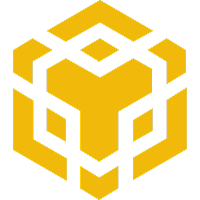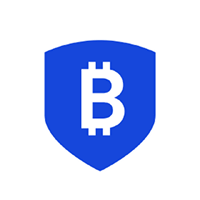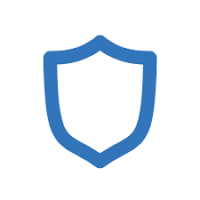Struggling to keep your crypto safe in 2025? With rising scams, hacked exchanges, and phishing attacks, many crypto users are anxious about the safety of their digital assets. A single wrong tap, and your hard-earned coins could vanish.
Whether you’re a beginner or a seasoned trader, the right wallet can offer peace of mind, secure transactions, and easy access to your coins anytime, anywhere.
| The global crypto wallet market is expected to grow from $14.39 billion in 2024 to $19.03 billion in 2025, marking a 32.2% year-over-year increase. |
In this blog, we’ll break down the best crypto wallets of 2025, covering everything from hardware options to mobile-friendly apps so that you can invest with confidence.
Understanding Crypto Wallets
A crypto wallet is a software application or a physical device that enables users to store, send, and receive cryptocurrencies securely. Unlike traditional wallets that store physical currency, crypto wallets hold the private keys required to access the crypto app on blockchain addresses associated with a user’s digital assets. These private keys are essentially cryptographic keys that prove ownership of the funds and authorize transactions.
Types of Crypto Wallets
One of the most important parts of managing and protecting your digital assets is selecting the appropriate cryptocurrency wallet. Carefully assessing the security features and reputation of the wallet provider is crucial, even if you choose the convenience of a software or mobile wallet or the increased security of a hardware wallet.
1. Custodial Wallets: These wallets are built into centralized exchanges like Binance, Coinbase, or Kraken. In this case, the exchange holds your private keys for you, making the whole process smoother, especially for beginners. But there’s a trade-off: you’re trusting the exchange to keep your assets safe. High-profile cases like Mt. Gox, Bybit hacks, and the FTX collapse show just how risky that can be.
2. Non-Custodial Wallets: With non-custodial wallets (like MetaMask or Trust Wallet), you control your private keys. This gives you more security and freedom, but it also means you’re fully responsible for keeping your keys safe. These wallets are ideal for those who value control and decentralization.
3. Hot Wallet: Hot wallets stay connected to the internet, which makes them fast and convenient for transactions. They can be either custodial or non-custodial. Just remember—they’re more exposed to cyber threats, so strong passwords and 2FA are a must.
4. Cold/Hardware Wallets: Cold wallets, including hardware wallets like Ledger or Trezor, keep your keys offline. This makes them much safer from hacks. Depending on who holds the keys, they can be custodial or non-custodial.
Key Factors to Consider When Selecting a Wallet
By staying informed and adopting best security practices, you can enjoy the benefits of cryptocurrencies while ensuring the safety of your investments in this dynamic and exciting financial landscape. Some key factors to keep in mind include:
- Security Features: Security should be the top priority when selecting a crypto wallet. Look for wallets that offer features like two-factor authentication (2FA), biometric login, and PIN codes. Hardware wallets, in particular, are renowned for their robust security measures.
- Reputation and Reviews: Conduct thorough research and read user reviews to gauge the reputation and reliability of the wallet provider. A well-established and trusted wallet provider is more likely to have a secure and well-maintained platform.
- Private Key Ownership: Ensure that you have full control over your private keys. Some web-based and exchange-based wallets might retain control over the keys, potentially exposing your funds to third-party vulnerabilities.
- Backup and Recovery: A reliable wallet should provide a secure and straightforward backup and recovery process, such as the generation of a unique seed phrase. This feature is crucial in case of lost or stolen devices.
- Multi-Currency Support: If you hold multiple cryptocurrencies, opt for a wallet that supports a wide range of digital assets. This will save you the hassle of managing multiple wallets for different coins.
- User-Friendly Interface: The wallet’s user interface should be intuitive and easy to navigate, especially for beginners. Complicated interfaces might lead to mistakes that could compromise the security of your funds.
- Development Community and Updates: Active development and regular updates indicate that the wallet is well-maintained and continually improving its security features.
Top 10 Best Crypto Wallets of 2025
Here’s our handpicked list of the Top 10 new crypto wallets in 2025, including both custodial and non-custodial options. We’ve thoroughly reviewed each wallet, highlighting its key features, pros, so you can choose the one that best fits your needs.

1. Coinbase Wallet
Coinbase Wallet is a user-friendly, non-custodial wallet developed by the popular Coinbase exchange. It allows you to store, send, and receive a wide range of cryptocurrencies while keeping full control of your private keys. Key features include integration with decentralized apps (dApps) and strong security through biometric authentication.
It also supports NFTs and DeFi access. Coinbase Wallet is best suited for beginners and intermediate users who want a simple yet secure way to explore the crypto world beyond just buying and selling.

2. Binance Wallet
Binance Wallet is the built-in wallet offered by Binance, one of the leading cryptocurrency exchanges. It supports a wide range of cryptocurrencies and offers integration with the Binance trading platform. Key features include real-time trading access and strong security protocols like two-factor authentication.
It also allows easy fiat-to-crypto conversions. This wallet is best suited for active traders and beginners who prefer a simple, all-in-one solution without managing private keys themselves. It combines convenience with the power of the Binance ecosystem.

3. Gemini wallet
Gemini Wallet is a user-friendly, secure crypto wallet built by the trusted Gemini exchange. It offers integration with the Gemini platform, making it ideal for beginners and casual investors. One standout feature is its robust insurance coverage, which adds an extra layer of peace of mind.
It also supports a wide range of cryptocurrencies, allowing flexible portfolio management. Gemini Wallet is best suited for those who want a simple, regulated, and secure way to store and manage their digital assets.

4. Bitgo wallet
BitGo Wallet is a trusted name in the crypto space, known for its enterprise-grade security and multi-signature technology. It supports a wide range of cryptocurrencies and offers institutional-level protection. One standout feature is its multi-user access control, making it ideal for teams or organizations.
It also provides insurance options, giving users added peace of mind. BitGo is best suited for high-volume traders, crypto businesses, and institutional investors who prioritize security, compliance, and advanced asset management tools in 2025.

5. Trezor
Trezor is one of the most trusted hardware wallets in the crypto world. It stores your private keys offline, keeping your assets safe from online threats. With a simple interface and top-notch security, it’s easy to use even if you're not tech-savvy.
Features include passphrase protection and support for 1,000+ coins and tokens. Trezor is best for long-term investors and serious crypto holders who prioritize maximum security over convenience. If you’re holding large amounts, this one’s a no-brainer.

6. Kraken
Kraken is a well-known crypto exchange that also offers a built-in custodial wallet for storing your digital assets. Users benefit from advanced security measures, including two-factor authentication and encrypted storage.
The interface is beginner-friendly, yet powerful enough for experienced traders. Kraken's wallet is best for users who want the convenience of managing their crypto directly through a trusted exchange, without the hassle of handling private keys themselves.

7. MetaMask
MetaMask is one of the most popular non-custodial crypto wallets, known for its easy browser extension and mobile app. It lets users store, send, and receive Ethereum-based tokens with just a few clicks. Features like in-app token swaps and access to dApps (decentralized apps) make it a favorite among Web3 users.
You can also connect it directly to DeFi platforms. MetaMask is best suited for crypto-savvy users, developers, or anyone exploring the Ethereum ecosystem and decentralized finance.

8. Trust Wallet
Trust Wallet is a popular non-custodial crypto wallet known for its simplicity and security. It supports a wide range of cryptocurrencies, allowing users to store Bitcoin, Ethereum, and thousands of other assets all in one place.
With built-in features like staking, an integrated decentralized exchange (DEX), and secure private key storage, it ensures complete control over your assets. Ideal for both beginners and experienced crypto users. Trust Wallet is best for those who value decentralization and user-friendly design.

9. Phantom Wallet
Phantom Wallet is a popular non-custodial wallet designed for interaction with the Solana blockchain. It offers features like fast transaction speeds and easy integration with decentralized apps (dApps), making it perfect for those exploring the Solana ecosystem.
Additionally, Phantom provides built-in staking options and NFT support, making it a great choice for users who are into decentralized finance (DeFi) or NFT trading. This wallet is best suited for Solana users looking for a user-friendly, secure crypto wallet.

10. SafePal
SafePal is a secure and user-friendly crypto wallet designed for both beginners and experienced traders. It offers hardware-level protection with its offline storage, keeping your private keys away from online threats. One standout feature is its multi-currency support, allowing you to store a variety of cryptocurrencies in one place.
SafePal also includes a built-in DApp browser for decentralized app access. It's ideal for those who want robust security without sacrificing convenience, making it perfect for anyone looking to protect their assets long-term.
Conclusion
Choosing the best crypto wallet in 2025 can be overwhelming, but it’s crucial to protect your digital assets. However, by focusing on factors like security features, ease of use, supported cryptocurrencies, and overall reputation, you can do your best. From hardware wallets for offline security to mobile and web wallets for ease of access, there’s a solution for every type of crypto user.
Take the time to research and choose a wallet that fits your needs. Investing in the right wallet can safeguard your future gains. Don’t compromise, secure your digital assets with the best wallet available. Recently, SoluLab helped Mobyii, a modern e-wallet app, improve cashless shopping with secure, convenient payments. The key challenge was ensuring security, tackled using encryption, biometric access, and digital receipts. With sleek design, utility bill payments, and wide compatibility, Mobyii now rivals top fintech apps like PayTM, offering cashback, rewards, and money transfers.
SoluLab, a cryptocurrency wallet development company, could help you pick the right wallet as per your requirements. Contact us today to discuss further.

FAQs
1. How do hardware wallets ensure the security of my digital assets?
Hardware wallets, such as the Ledger Nano X and Trezor Model T, keep your private keys offline in a secure, tamper-proof device. This isolation from the internet ensures that your keys are protected from online threats like hacking and malware.
2. Are software wallets as secure as hardware wallets?
While software wallets like Exodus Wallet and Trust Wallet prioritize security and employ encryption measures, they are connected to the internet, which can expose them to potential online attacks. Hardware wallets are generally considered to offer a higher level of security due to their offline nature.
3. What is the advantage of web-based wallets like MetaMask?
Web-based wallets like MetaMask provide seamless access to decentralized applications (dApps) on the blockchain. Their integration with web browsers allows users to interact with dApps directly, enabling a more intuitive and user-friendly experience within the decentralized ecosystem.
4. How can I ensure the longevity of my chosen crypto wallet?
To ensure the longevity and security of your chosen crypto wallet, always keep your software and firmware updated. Regularly back up your private keys or seed phrases in a safe and secure location. Additionally, remain vigilant about potential security updates and best practices to protect your digital assets from any emerging threats.




